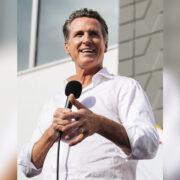THE verdict of the American people is out: President Barack Obama wins over his Republican challenger Mitt Romney, after going over the top of the required absolute majority (magic number 270) of the electoral vote: 303 -206. The President also won the popular vote, 50 percent (59,935,130 votes), versus Romney’s 48 percent (57,256,881 votes).
President Obama won not only in the solid and leaning Democratic states, but also in 7 of the 10 battleground states– Nevada, Colorado, Iowa, Wisconsin, Ohio, Virginia and New Hampshire–losing only to Romney in Indiana and North Carolina, with Florida still pending but leaning Obama.
It was Obama’s victory in Ohio, ground zero of this election, that put him over the top. No Republican nominee has won the Presidency since 1964 without winning Ohio, and Romney’s loss there and in other swing states paved the way for an Obama re-election.
For more than two years, and especially in the few months leading up to the November 6 Presidential Elections, we have all been drowning in political ads, commentaries, robocalls, debates and poll after poll, on the race to the White House. It had been a nail biter to the finish, especially because the race had been as close as it could be, a dead heat at 49-49 just before election day.
With the tightness of this fierce battle, many of us are just relieved it is over.
The US Election system works differently from what we’re used to in the Philippines. The winner of this election will be the candidate who will get the majority of the electoral college votes — NOT the popular vote. In the Philippines, one popular vote is one vote for the candidate. The candidate who gets the majority vote (or the plurality vote, if there are more than two candidates), is declared the winner. This is not the case in America.
In the United States, we practice an indirect election of our President through the “Electoral College”, as mandated by Article 2, Section 1 of the US Constitution.
Composed of 538 members, the Electoral College is created, with each state having as many electors as it has representatives and senators in the national legislature, plus 3 for the District of Columbia.
When citizens participate in a presidential election, they are actually voting for electors pledged to vote for their candidate.
History books explain that the Electoral College was created for two reasons: first, to create a buffer between population and the selection of a President. The founding fathers were afraid of direct election to the Presidency, fearing that a tyrant could manipulate public opinion of an uninformed electorate and come to power.
The second reason for the Electoral College is to give extra power to the smaller states. If the President is elected using the popular vote, then the fate of the nation will be decided by big populated cities, to the disadvantage of the will and the voice of less-densely populated states and rural areas.
For either Obama or Romney to be elected President, he must obtain an absolute majority in the Electoral College, which is currently at 270 — the magic number.
If no candidate gains an absolute majority, the US House of Representatives makes the choice, with the delegation from each state having one vote. Each state has as many electors in the Electoral College, as it has senators and representatives in Congress.
Of course, many people have been clamoring for the abolition of the Electoral College and opt to elect the President via popular vote instead.
In recent history, we recall that in 2000, Democratic Presidential Candidate Al Gore may have won the popular vote, but Republican Presidential candidate George W. Bush was proclaimed the winner of the election, because he won the electoral vote.
Many pundits feared that with the tightness in the polls of this year’s presidential election, it could become 2000 all over again, and it might take days, or even weeks, before a winner is declared.
Already, both camps had reportedly deployed lawyers and observers in critical battleground states, in case of voting irregularity or deadlock.
If results had been questionable, this election might have been decided by the provisional ballots in critical states.
A provisional ballot is cast when:
– The voter refuses to show a photo ID (in regions that require one);
– The voter’s name does not appear on the electoral roll for the given precinct.
– The voter’s registration contains inaccurate or out-dated information such as the wrong address or a misspelled name.
– The voter’s ballot has already been recorded
Whether a provisional ballot could be counted in the final tally would be contingent upon the verification of that voter’s eligibility. The nail biter here would be the fact that provisional ballots not counted 10 days after election, therefore, their vote would not affect the calling of the states to different candidates.
If lawsuits should ensue, and recounts would again be demanded by either party, then this election could have taken a month or more to be decided, and might have gone up all the way to the Supreme Court.
But what if it had been a tie in electoral votes, with both Obama and Romney getting 269 each, and no one got the required absolute majority – the 270 magic number, to be declared winner?
No, the popular vote will NOT be the tie-breaker.
The Constitution dictates that in case of a tie in the Electoral College vote, the newly-seated House of Representatives would select the president. According to the 12th Amendment, each state delegation casts one vote, regardless of how small or big a state is. The Presidency goes to the candidate who wins more states.
And if this is not complicated enough, the Senate is tasked to vote for the Vice President. In my interview with Political Science Professor from University of San Francisco Jay Gonzales on Balitang America, he pointed out the possibility that the House of Representative votes for Romney while the Senate chooses Joe Biden for Vice President.
This would also mean that in case of a tie, we would have to wait until January when Congress convenes. Long wait!
But last November 6, the American voters have made a clear decisive choice on who really won this election, and this has spared the nation from long complicated legal battles and election chaos.President Barack Obama has been re-elected and will be the leader of our nation for four more years.
It is time to turn the page and move forward.
***
Gel Santos Relos is the anchor of TFC’s “Balitang America.” Views and opinions expressed by the author in this column are are solely those of the author and not of Asian Journal and ABS-CBN-TFC. For comments, go to www.TheFil-AmPerspective.com, https://www.facebook.com/Gel.Santos.Relos




